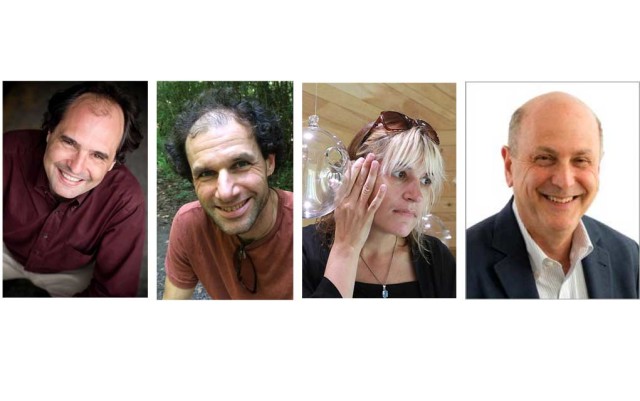
Sustainability is an all encompassing concept that affects every part of our lives. It’s not just about science and the environment but also includes art, family, movement, politics and education. And while most of us, to some degree, wrestle with balancing the necessities and conveniences of daily living in the modern world and our consumption of resources, sustainability seeks to resolve this internal conflict by providing lasting solutions.
And for many of the experts addressing the topic at the Conference on World Affairs, it all starts with the individual.
“You can look at the broader definition [of sustainability] in terms of living within the means of nature and looking at it into generational issues and looking at a respect for limits and looking at stewardship,” says panelist Andrés Edwards. “But ultimately I think it’s really important for each individual to figure out what is my stake in it? How can I contribute? What is my role in this?”
Edwards has a varied background in sustainability consulting for numerous projects and exhibits who has written several award-winning books on the topic. But he’s principally an educator, which allows him to help people connect to larger abstract concepts.
Through education, Edwards says, people are able to gain a greater understanding of themselves and the impact they have on the world around them.
And with that belief, he retorts the common response he hears that one person can’t significantly contribute to sustainability on their own. “Each individual actually makes a huge difference,” Edwards says. “If you’re true and believe you’re doing something that has meaning for you, then if you take it out into the world, chances are you will have an impact.”
Understanding the scale of that impact is also significant, Edwards says. While most people can’t relate sustainability on the policy level, they can contribute to it on the local level.
“It all starts locally, it starts with us,” Edwards says. “That’s the only place you can start.”
And it’s this concept of scale that also brings in Matthew Nelson, a movement therapist, dancer and choreographer.
“It’s not an all-or-nothing, there are levels of scale,” Nelson says. In his work, Nelson also focuses on the individual but understands the larger context that sustainability requires.
“I’m particularly interested in how we embody sustainability,” Nelson says. “How we experience our bodies extends tremendously to how we participate in the world at large. … Sustainability is this outward idea that we contribute to, but it starts internally.”
And to do this, Nelson says we have to take care of ourselves first and foremost. Although the world might see this as selfish, he likens it to putting on your own oxygen mask before helping others in case of an emergency on an airplane.
“If we’re talking about being sustainable with the earth as a system, it means starting to put our pieces together and function as a whole,” he says. “And the only experience I can have of that is my own. Unless we deal with how are we living within ourselves we can’t really bring a full perspective to how are we doing that with each other.”
Nelson admittedly “resists” the word sustainability, preferring instead the concept of generativity, because it relies on creating surplus to pass onto the next generation, rather than simply slowing down the use of finite resources.
Bringing in yet another perspective is panelist Andrea Polli, a professor at the University of New Mexico. orking in the fields of art, ecology and digital media, she’s most concerned with the issue of technology and sustainability.
“I’m critical of a thought process that says [sustainability has] a technological fix,” Polli says. “There’s a level in which it’s a real social problem.”
As a social issue, becoming sustainable is a question of community interaction for Polli. While she’s moved to New Mexico in hopes of living a more sustainable lifestyle, such as access to locally grown food, she has since struggled with living on a larger piece of land that requires more energy than her previous New York apartment, where she shared heating and cooling with her neighbors.
“There’s this aspect of how you live with the other people in your community and how we all sort of live together,” she says, “that ties in with the sustainability question.”
And with that, she sees the goal of sustainability constantly evolving. Take greenhouse gas emissions for example, Polli says. At the 2015 COP21 Paris climate conference, “people were actually talking about zero emissions and that’s a target that we’ve never really heard before.”
Polli, Edwards and Nelson will also be joined by Peter C. Frumhoff, the director of science and policy for the Union of Concerned Scientists (UCS), an organization of leading scientists seeking to create a sustainable future. In his work and writing, he advocates for corporate accountability and international cooperation in combating climate change while denouncing corporate lobbying and misinformation campaigns.














